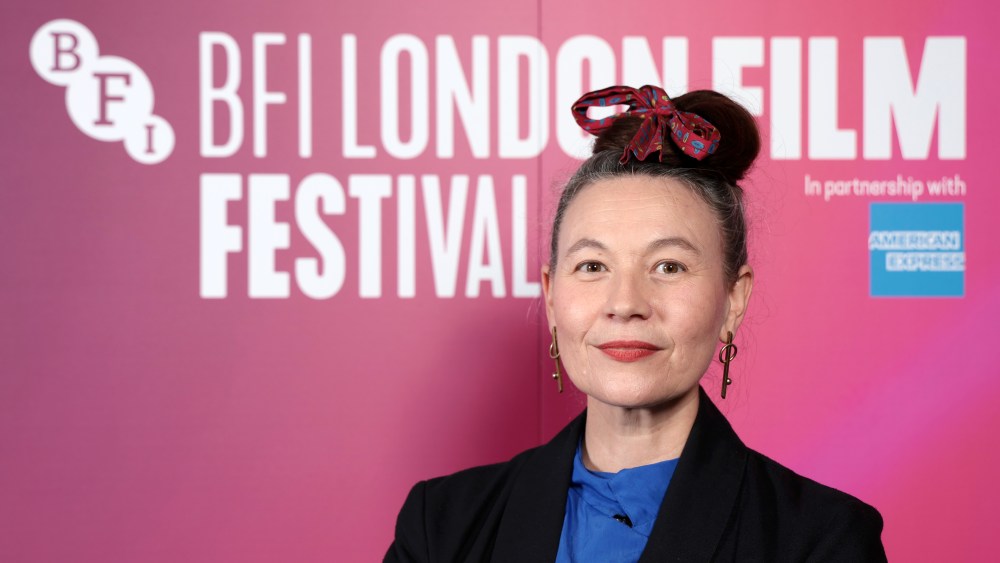The 69th edition of the BFI London Film Festival — the biggest film event in the U.K. — kicks off on Oct. 8.
Launching with the European premiere of Rian Johnson’s “Wake Up Dead Man: A Knives Out Mystery,” the lineup of around 250 films, like most years, is awash with big hitters from across 2025’s other major festivals. Jim Jarmusch’s Venice-winner “Father Mother Sister Brother” is there, as is Jafar Panahi’s Cannes winning “It Was Just an Accident,” plus “Frankenstein,” “After the Hunt,” “Bugonia,” “Die My Love,” “Hamnet,” “The Testament of Ann Lee,” “Sentimental Value” and “Jay Kelly.” Many of the key titles will likely be getting a sizeable push from studios and streamers hoping to impress the British capital’s growing number of resident AMPAS, BAFTA and Golden Globe voters as awards season kicks into gear. There are also eight features world premiering, including British boxing drama “Giant.” The festival closes with Julia Jackson’s “100 Nights of Hero” on Oct. 19, with the hope that the film’s all-star cast — including Charli xcx — will be in attendance.
Speaking to Variety ahead of the event, festival director Kristy Matheson discussed the importance — or not — of landing world premieres, accepting that protest may take center stage and, with Tilly Norwood still causing a stir, the prospect of programming a film starring an AI creation.
How are you feeling about this year’s edition of the festival?
I’m really excited. We sort of start in January, looking at works in progress over the winter, but really we’re viewing finished films from January onward. And even by the time we sort of got out of the winter festivals, the program team and I were thinking it was going to be very, very busy. And then, as we headed into the spring and the summer the abundance of films kept coming. It didn’t seem to slow, which made for some pretty tough program meetings toward the end, because there were so many things that we really liked. But yeah, I’m really proud of the program.
I know you’re can’t really single things out, but is there anything you’re particularly excited about?
This year we’re have a very large scale installation called “NowIsWhenWeAre (the stars),” and it’s created by an artist called Andrew Schneider. It’s very immersive, with over 4000 reactive LED lights and a soundscape made up of something insane, like over 450 different channels of sound. So you walk in and you are in the cosmos. I’m very excited about that, because it’s something I haven’t actually got to see myself yet.
There’s obviously an obsession with festivals having world premieres. London usually managed to carve out a few bigger name titles to debut and last year opened with the world premiere of “Blitz,” but there aren’t any major studio titles bowing this time around. Is it becoming more difficult to negotiate premieres from studios and streamers?
We sit in a luxurious corridor in the sense that we come after all the major summer festivals. And I think that you could look at that as a real disadvantage, but for myself and the programming team, it feels like a real sense of freedom. There’s so many films that gets that get launched in this period and we’re an audience facing festival. That’s who we program for and who the festival really is for and in terms of audiences, last year with admissions at 230,000 there’s a lot of audience appetite here for the festival. But I think that this idea of chasing world premieres takes a lot of energy. And I feel for audiences, they’re not as interested in the world premiere. As a curator, it’s very important to not lose sight of the audience.
Festivals have always been platforms for protests but this year more than ever given what’s going on in the world, especially in Gaza. Are you anticipating protest to play a major part of this edition of the festival, even if not related to any of the films?
We’re running a festival which is a large public event. And so, by very nature of it being a large public event, we’re always planning for those moments to happen. Primarily when we’re putting the festival together, there’s obviously a lot of thinking that goes into the production and for us it’s about making sure that we can present the films in a space that’s safe and that feels very comfortable for our filmmakers and audiences. But I think that people need to express feelings. The point of art is that it brings up a lot of ideas and emotions, so by its very nature it’s a space where people want to have dialog. So I think that’s a very normal thing to happen within a festival.
So beyond the aspects of safety, there’s not going to be any effort to diminish any of that?
We’re always mindful, but we certainly don’t want a situation where we wouldn’t want people to be able to express their feelings.
Another hot topic is AI and we’re all seen the recent uproar and debate about Tilly Norwood. Has AI infiltrated the festival in any way? Does anyone use a little ChatGPT to write the program or anything like that?
No! I told someone recently I had to write all my synopses. And they said, oh, you should just get ChatGPT to do it. And I was like, what? It was a very like old lady moment. But no, we don’t use it. We schedule with humans in a room, and we write all of our notes at a computer.
Would you ever allow a film to be programmed starring an AI actress on your watch?
Who knows! It could be happening and I don’t even know! It feels like we’re in a very strange space between two worlds. Maybe this is what people felt like when photography happened.
